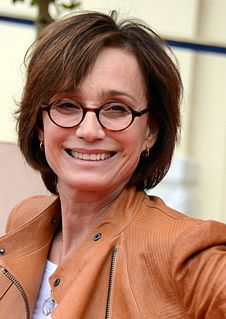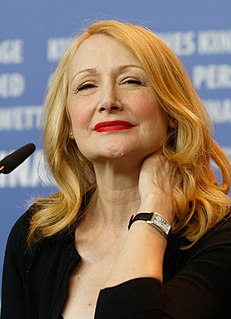A Quote by Jessica Chastain
I look at all the ingredients of a film and say, 'Is this a positive thing that I'm putting into the world? Is there honor and respect in the way the story is being told about them? And would they approve of that?'
Related Quotes
A story is a way to say something that can't be said any other way, and it takes every word in the story to say what the meaning is. You tell a story because a statement would be inadequate. When anybody asks what a story is about, the only proper thing is to tell them to read the story. The meaning of fiction is not abstract meaning but experienced meaning.
At the core, I am an actress. And I think, in a way, that's a good thing in that I am, I think, empathetic and sympathetic to the film. I would never pretend to have the discerning and acute critical eye that a lot of the great critics in our business do have. I don't look at it as being a critic or placing a judgment on a film, and I do think, how do you decide which film is best anyway? It's always a little bit of a mixed bag. But, I think it is just a collective group of people coming together to honor the work of an artist - that's how I think of it.
I think we have to change our perspective. I don't think life stops after 50 - if anything, it gets more and more exciting. For some reason, we don't honor or pay respect to aging. It's something that we look at as a negative, and yet every single person on this planet does it. I don't understand why it's not something that's celebrated, why there's some sort of an expiration date on who you are as a person worth watching and a story being told about you. It makes absolutely no sense.
The film is made in the editing room. The shooting of the film is about shopping, almost. It's like going to get all the ingredients together, and you've got to make sure before you leave the store that you got all the ingredients. And then you take those ingredients and you can make a good cake - or not.
Being critical of art is a way of showing art respect. No sports writer would say, "Well the Yankees had a great season this year." No food critic would get a bad meal and say, "Oh, it was so lovely." It always strikes me as odd when people say, "Why do you write negatively about any art?" I think that everybody has mixed feelings about everything - even Goya. I mean, I look at Rembrandt sometimes and I hear a voice in my head go, "It's pretty brown."
Your reader is interested in a guileless, fresh, first-time-we-talked-about-it way. What a great liberation that is. And teenagers, if you respect them, will follow you a lot further than adults will, without fear of being a genre that they may not like or have been told not to like. They just want a story.
My initial thoughts about what a title can do was to set mood and the prime underlying core of the film's story, to express the story in some metaphorical way. I saw the title as a way of conditioning the audience, so that when the film actually began, viewers would already have an emotional resonance with it.
I believe in the complexity of the human story, and that there's no way you can tell that story in one way and say, 'this is it.' Always there will be someone who can tell it differently depending on where they are standing ... this is the way I think the world's stories should be told: from many different perspectives.
It's a little bit about being a global citizen, with all the United Nations positive umph that there is with that phrase - it's about being a positive do-gooder. But it's also: how can I participate in globalization in a really clear way? Like: don't leave the house unless you can bring something worthy into the world. And so Nicaragua changed the way that I want to do things.
The thing about games is, players often say they don't care about story, but then if you took the story out, what would their reaction be? If no one cared about story, we'd all still be playing Pac-Man. There's nothing wrong with Pac-Man, but the point is, there's a genre of games in which you want to become part of that world.



































